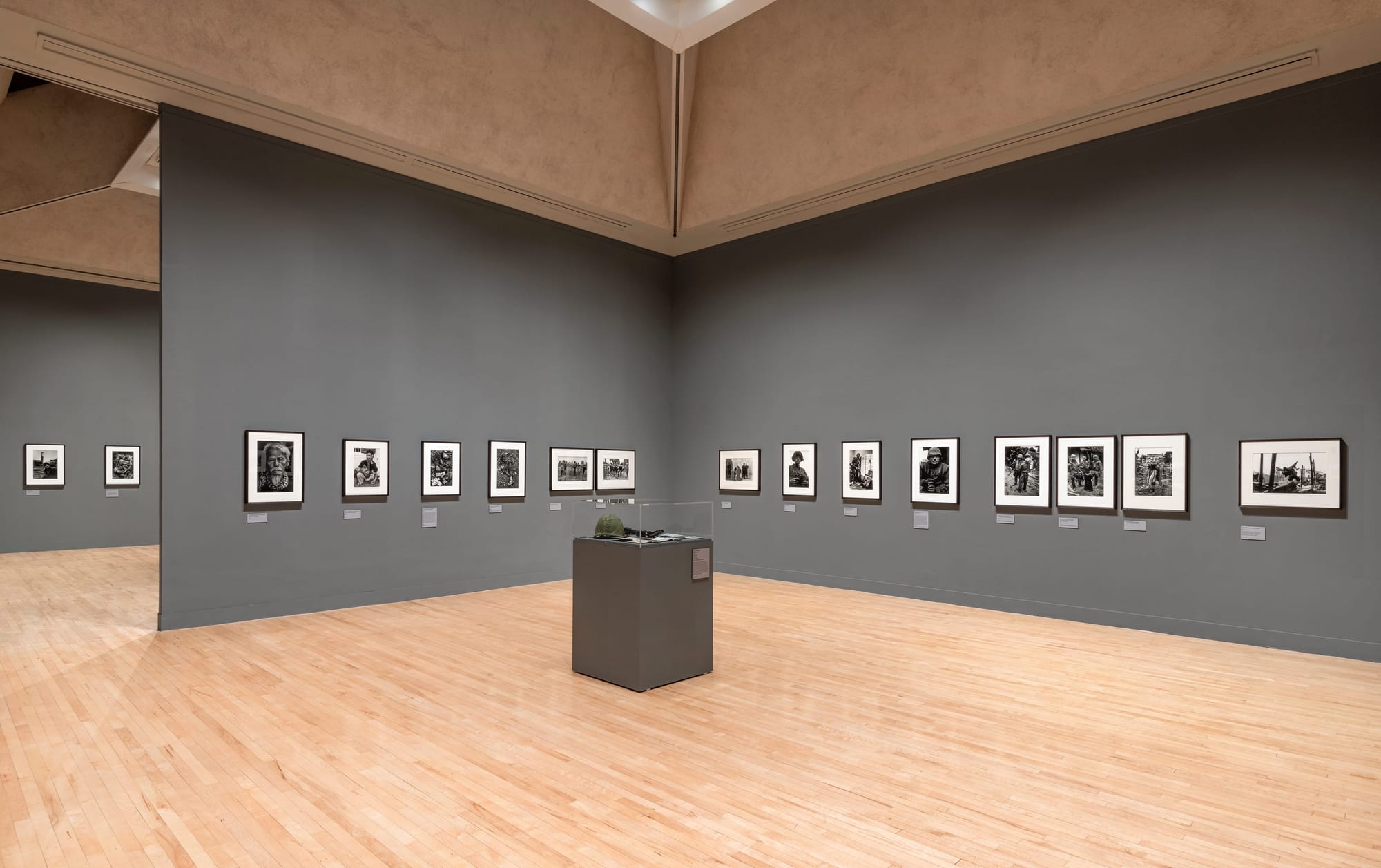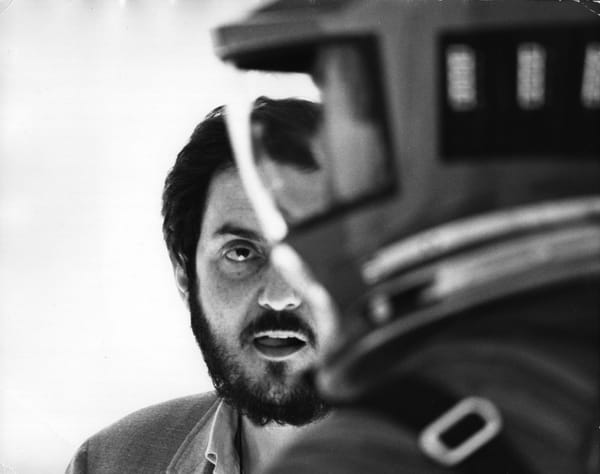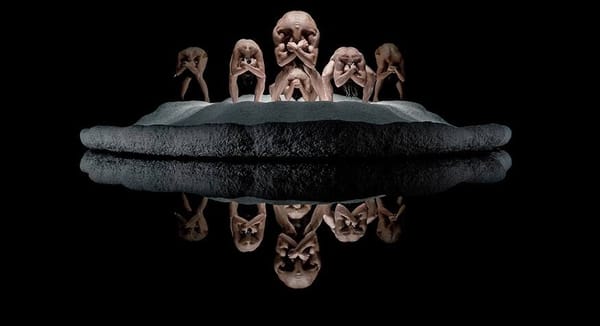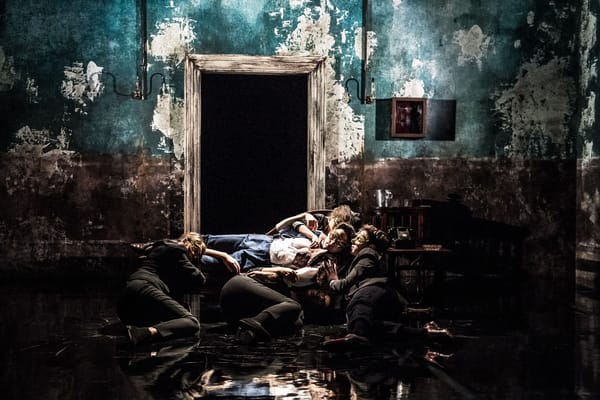Don McCullin

Don McCullin is best known as a ‘war photographer’, a title that does not sit easy with him. To him, photography is about empathy, but he has never felt that the impact of his pictures have done enough to end the suffering of the people he depicts. ‘If you can’t feel what you’re looking at,’ he said, ‘then you’re never going to get others to feel anything when they look at your pictures.’
In the largest retrospective exhibition of his works to date, this empathy McCullin speaks of penetrates each and every one of his photographs. Unusually for an exhibition of contemporary photography, he has printed every work himself. Although repeatedly returning to these pictures of suffering has taken its toll, perhaps printing his pictures personally completes the process of embodying empathy for his subjects.
Beginning with pictures of his community around Finsbury Park in London, where he grew up, this exhibition at the Tate Britain traces McCullin’s career across various assignments in different parts of the world in turmoil, interspersed with stints back home. What ties these photographs together is McCullin’s eye for human emotion, and a sensitivity towards the people living on the outskirts of society.
Even from his early works photographing gangs in north London, his photographs were intuitive, full of curiosity and empathy for his subjects. These photographs were picked up by the press, earning him his first contract. From there, he travelled to Berlin to document the building of the Berlin wall. In East Germans looking into West Berlin, he captures the curiosity, trepidation and uncertainty of the faces of the East Germans emerging from behind the half-built wall. In West Berliners looking East, women clad in thick coats look with concern into the distance, and a child looks through binoculars. These are the faces of people witnessing history, uncertain about the impact this wall will bring to their lives.
The impact of his photographs are perhaps best remembered by his photographs of the Vietnam War, in particular those taken in 1968 when he spent eleven days with American troops. His images depicting the impact of the war on the young American troops, many of whom inexperienced, contributed to the negative public impression of the war back in the US, and the increasing pressure to end it. His picture of Shell-Shocked US marine depicts the blank face of a marine staring into the distance, clutching his rifle, traumatized by the Battle of Hue, one of the longest and bloodiest battles of the war.
During his stints back in England, McCullin continued to show an interest in documenting the margins of society, of the suffering in his backyard. Between the 1960s to the 1980s, he photographed men and women living on the streets of Aldgate and Whitechapel, in images entirely unrecognizable today, following extensive gentrification of the area. He befriended many of the subjects he photographed, and painted intimate portraits of those who were left behind as the wealthy financial centre next door continued to surge forward.
This is an excellent exhibition that takes the viewer through Don McCullin’s varied career, on the way serving as a tour of modern history. These photographs are intimate, sensitive works that provide a window to immense suffering, seen through McCullin’s unflinching, empathetic eye.
Don McCullin is on at the Tate Britain until 6 May 2019.
- 4.5 stars










